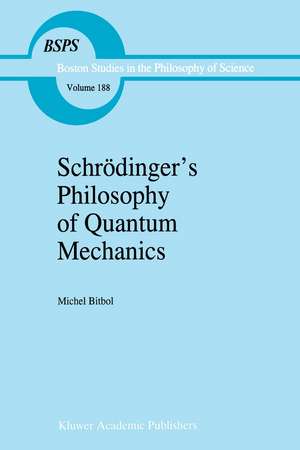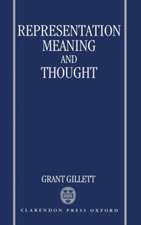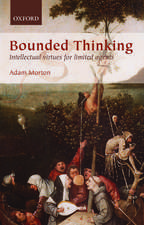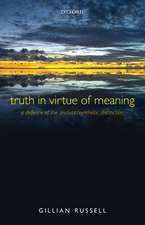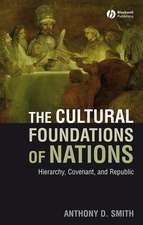Schrödinger’s Philosophy of Quantum Mechanics: Boston Studies in the Philosophy and History of Science, cartea 188
Autor Michael Bitbolen Limba Engleză Paperback – 19 ian 2012
| Toate formatele și edițiile | Preț | Express |
|---|---|---|
| Paperback (1) | 945.14 lei 43-57 zile | |
| SPRINGER NETHERLANDS – 19 ian 2012 | 945.14 lei 43-57 zile | |
| Hardback (1) | 950.66 lei 43-57 zile | |
| SPRINGER NETHERLANDS – 31 oct 1996 | 950.66 lei 43-57 zile |
Din seria Boston Studies in the Philosophy and History of Science
- 18%
 Preț: 944.19 lei
Preț: 944.19 lei - 15%
 Preț: 646.75 lei
Preț: 646.75 lei - 15%
 Preț: 646.75 lei
Preț: 646.75 lei - 15%
 Preț: 699.28 lei
Preț: 699.28 lei - 18%
 Preț: 736.50 lei
Preț: 736.50 lei -
 Preț: 500.01 lei
Preț: 500.01 lei - 15%
 Preț: 643.16 lei
Preț: 643.16 lei - 15%
 Preț: 650.69 lei
Preț: 650.69 lei - 15%
 Preț: 634.18 lei
Preț: 634.18 lei - 15%
 Preț: 642.68 lei
Preț: 642.68 lei -
 Preț: 391.40 lei
Preț: 391.40 lei -
 Preț: 383.33 lei
Preț: 383.33 lei - 18%
 Preț: 944.19 lei
Preț: 944.19 lei - 18%
 Preț: 955.56 lei
Preț: 955.56 lei - 15%
 Preț: 643.65 lei
Preț: 643.65 lei -
 Preț: 392.75 lei
Preț: 392.75 lei - 18%
 Preț: 1229.10 lei
Preț: 1229.10 lei - 18%
 Preț: 1238.23 lei
Preț: 1238.23 lei - 18%
 Preț: 951.29 lei
Preț: 951.29 lei - 18%
 Preț: 1223.25 lei
Preț: 1223.25 lei - 18%
 Preț: 1225.79 lei
Preț: 1225.79 lei - 18%
 Preț: 1226.42 lei
Preț: 1226.42 lei - 18%
 Preț: 1236.82 lei
Preț: 1236.82 lei - 15%
 Preț: 644.49 lei
Preț: 644.49 lei - 18%
 Preț: 1231.78 lei
Preț: 1231.78 lei - 15%
 Preț: 644.30 lei
Preț: 644.30 lei - 18%
 Preț: 957.62 lei
Preț: 957.62 lei - 18%
 Preț: 1222.49 lei
Preț: 1222.49 lei - 18%
 Preț: 947.50 lei
Preț: 947.50 lei - 18%
 Preț: 1833.95 lei
Preț: 1833.95 lei - 18%
 Preț: 1227.99 lei
Preț: 1227.99 lei - 18%
 Preț: 947.35 lei
Preț: 947.35 lei
Preț: 945.14 lei
Preț vechi: 1152.61 lei
-18% Nou
Puncte Express: 1418
Preț estimativ în valută:
180.85€ • 189.33$ • 149.64£
180.85€ • 189.33$ • 149.64£
Carte tipărită la comandă
Livrare economică 07-21 aprilie
Preluare comenzi: 021 569.72.76
Specificații
ISBN-13: 9789401072915
ISBN-10: 9401072914
Pagini: 308
Ilustrații: XII, 292 p.
Dimensiuni: 160 x 240 x 16 mm
Greutate: 0.44 kg
Ediția:Softcover reprint of the original 1st ed. 1996
Editura: SPRINGER NETHERLANDS
Colecția Springer
Seria Boston Studies in the Philosophy and History of Science
Locul publicării:Dordrecht, Netherlands
ISBN-10: 9401072914
Pagini: 308
Ilustrații: XII, 292 p.
Dimensiuni: 160 x 240 x 16 mm
Greutate: 0.44 kg
Ediția:Softcover reprint of the original 1st ed. 1996
Editura: SPRINGER NETHERLANDS
Colecția Springer
Seria Boston Studies in the Philosophy and History of Science
Locul publicării:Dordrecht, Netherlands
Public țintă
ResearchCuprins
1: The Controversy between Schrödinger and the Göttingen-Copenhagen Physicists in the 1950’s.- 1–1 Schrödinger’s successive interpretations of quantum mechanics according to the current views.- 1–2 Born’s and Heisenberg’s criticism of Schrödinger’s late interpretation of quantum mechanics.- 1–3 Historical flaws in the Born-Heisenberg critique of Schrödinger’s late interpretation of quantum mechanics.- 1–4 Misunderstandings about the concept of particle.- 1–5 Misunderstandings about the concept of “reality”.- 1–6 Misunderstandings about “causality”.- 1–7 Schrödinger’s over-revolutionary attitude.- 1–8 Modernity and post-modernity.- 1–9 The continuity of Schrödinger’s attitude towards quantum mechanics (an outline).- 2: Schrödinger’s Theoretical Project.- 2–1 Reality and virtuality (1924).- 2–2 Holism and wave-packets (1925).- 2–3 Holism and the three dimensions of space (1926).- 2–4 Wave interpretation versus electrodynamic interpretation: a prehistory of the empirical correspondence rules.- 2–5 The lack of pictures.- 2–6 The lack of continuity.- 3: The Analytical Stance.- 3–1 The ontological significance of the uncertainty relations.- 3–2 The state vector as a catalog of informations.- 4: Towards a New Ontology.- 4–1 The fading of the concept of particle.- 4–2 An ontology of state vectors.- 4–3 The “blind spot” of quantum mechanics.- 4–4 Neo-Schrödingerian views on the measurement problem. I-Everett’s interpretation.- 4–5 Neo-Schrödingerian views on the measurement problem II-Modal and critical interpretations.- 5: The “Thing” of Everyday Life.- 5–1 The three features of objects.- 5–2 The aspects and the “thing”.- 5–3 The “elements” of the construction (Mach, Russell,Schrödinger, Husserl).- 5–4 Are the “basic data” really basic?.- 5–5 The construction of objects and the unconscious.- 5–6 The “thing” and the future.- 5–7 Possibilities and infinities.- 5–8 The “thing” as theory, and the theory as expectation.- 5–9 Realism and morals.- 5–10 Form and individuality.- 5–11 Wholeness and individuality.- 6: Complemetarity, Representation and Facts.- 6–1 Schrödinger’s criticism of Bohr’s complementarity.- 6–2 Bohr’s complementarities.- 6–3 Schrödinger’s “complementarities”.- 6–4 Two parallelisms.- 6–5 Being-in-a-body and being-in-the-world.- 6–6 The body, the world, and dualism.- 6–7 The body, the world, and monism.- 6–8 The body, the world, and anomalous parallelism.- Conclusion.
